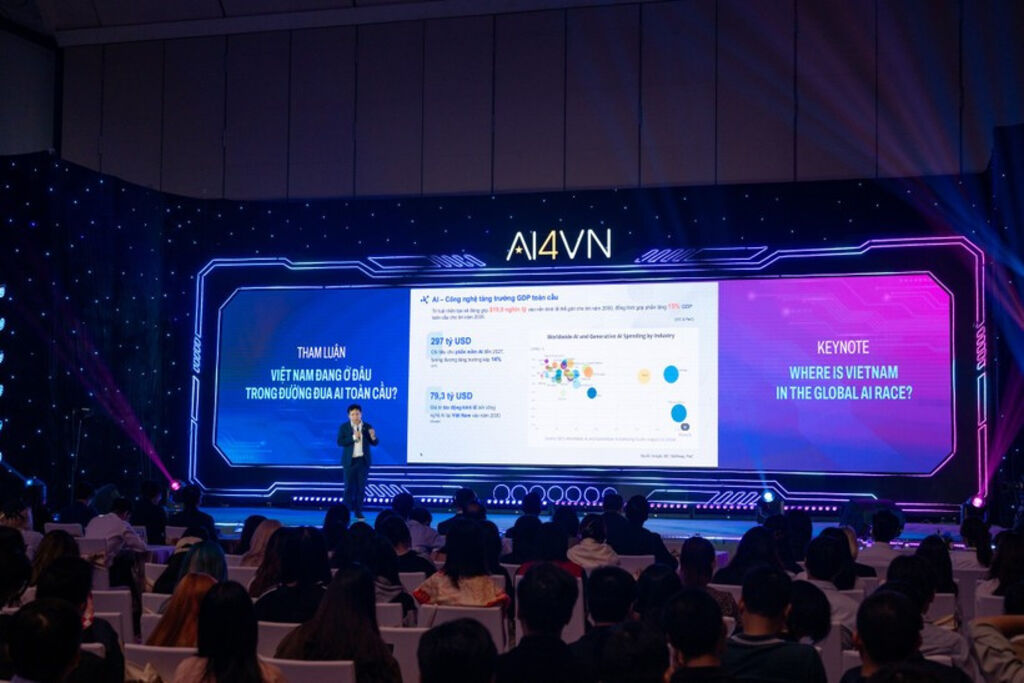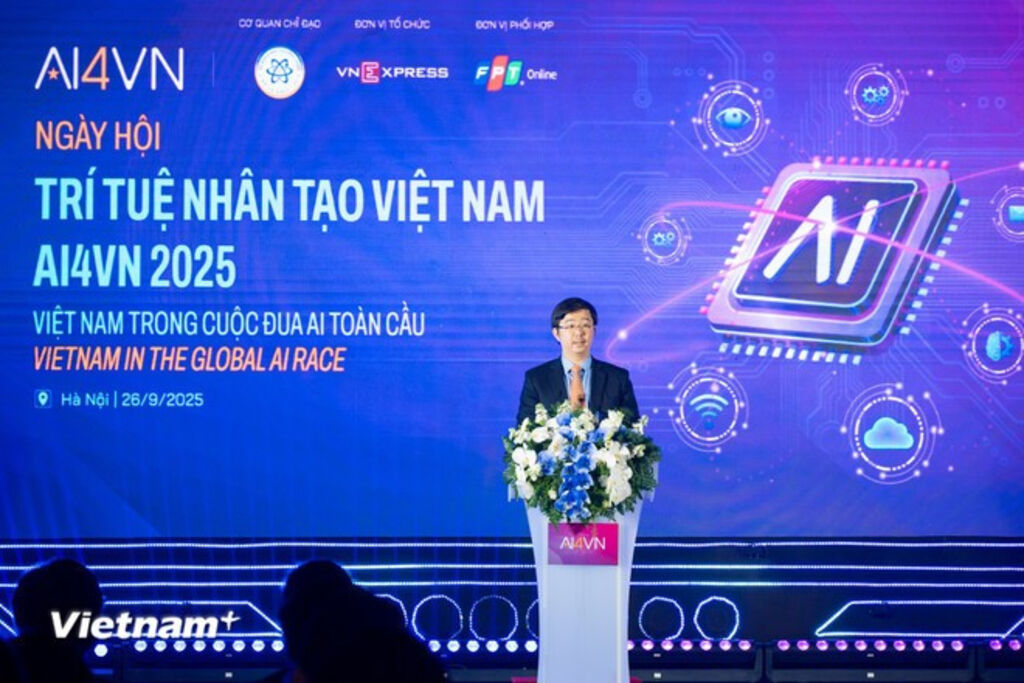 |
| At the plenary session of AI Day 2025__Photo: VNA |
Vietnam is moving closer to becoming one of the few countries with a comprehensive legal framework on artificial intelligence (AI) as the draft AI law is expected to be submitted to the National Assembly by the end of 2025.
So said Deputy Minister of Science and Technology Bui Hoang Phuong while opening the Vietnam Artificial Intelligence Day (AI4VN 2025) in Hanoi on September 26.
Themed “Vietnam in the Global AI Race”, the event was organized by online newspaper VnExpress under the auspices of the Ministry of Science and Technology (MoST). It provides a platform for policymakers and businesses to exchange measures for fostering AI application and development in line with Vietnam’s digital transformation and AI strategy.
Phuong shared the country’s key directions for AI legislation, underscoring Vietnam’s ambition to position itself as a pioneer in the field.
The draft law is based on five core principles-human-centered development, safety and transparency, inclusiveness and sustainability, balanced governance, and harmony. It adopts a risk-based management approach under which high-risk AI systems will face stricter monitoring. Transparency requirements such as clear labeling when users interact with AI systems are also emphasized to help distinguish between human- and machine-generated content.
The Deputy Minister said the proposed legislation aims to incentivize innovation, including preferential policies for AI research and development. The MoST is already piloting AI application to internal activities, including drafting legal documents to reduce workload and save time.
 |
| Deputy Minister of Science and Technology Bui Hoang Phuong speaks at the event__Photo: VNA |
AI ethics in sectors such as education, health care and finance will remain central, he stressed, affirming that final decisions in these areas must rest with humans.
As AI management and development require a multi-dimensional approach balancing innovation and people and enterprises' interests, experts, businesses, and state agencies play an indispensable role in this process, Phuong said, reiterating the ministry’s commitment to building a legal framework for an open, transparent, and effective AI ecosystem.
Kim Wimbush, Counselor at Australia’s national science agency CSIRO and Director of the Aus4Innovation program in Vietnam, said the theme of AI4VN 2025 reflects Vietnam’s ambition to harness the Fourth Industrial Revolution to promote innovation for development and contribute to global progress.
He noted that Australia and Vietnam have been cooperating in developing and applying new technologies, with AI being developed responsibly and sustainably. Since the launch of their innovation partnership in 2017, now a pillar of the Comprehensive Strategic Partnership established in March 2024, Australia has supported Vietnam in advancing AI applications in breast cancer diagnosis, agricultural productivity, and environmental management, including conservation of rare species such as the sarus cranes.
The two countries have collaborated to create an ethical framework for AI. In June 2024, with support from CSIRO and the Vietnam National University’s School of Law, the MoST issued guidelines on responsible AI research and development. Another milestone came in 2025 with the launch of the Australia – Vietnam Strategic Technology Centre, focusing on 5G, 6G, cybersecurity, AI, and digital transformation. The initiative underscores Australia’s commitment to supporting Vietnam in implementing the Politburo's Resolution 57-NQ/TW, which identifies science and technology as a key driver of development.
Le Hong Viet, CEO of FPT Smart Cloud, noted Vietnam, currently classed as an “emerging potential” AI player in ASEAN, faces a significant investment gap compared with the US, China, and Singapore. Nonetheless, he pointed out Vietnam’s competitive advantages in cost, proactive government support, and rapid economic growth while acknowledging challenges in infrastructure, talent shortages, legal frameworks and R&D spending.
Delegates at AI4VN also discussed issues such as AI infrastructure as a foundation for a digital Vietnam and how enterprises can prepare to leverage AI agents. Vinmotion’s humanoid robot delivered interactive demonstrations during the event.
Now in its eighth year, AI4VN has established itself as a flagship forum for AI policy dialogue in Vietnam, bridging government agencies and enterprises, and raising public awareness of AI’s role in daily life and national development.- (VNA/VLLF)









